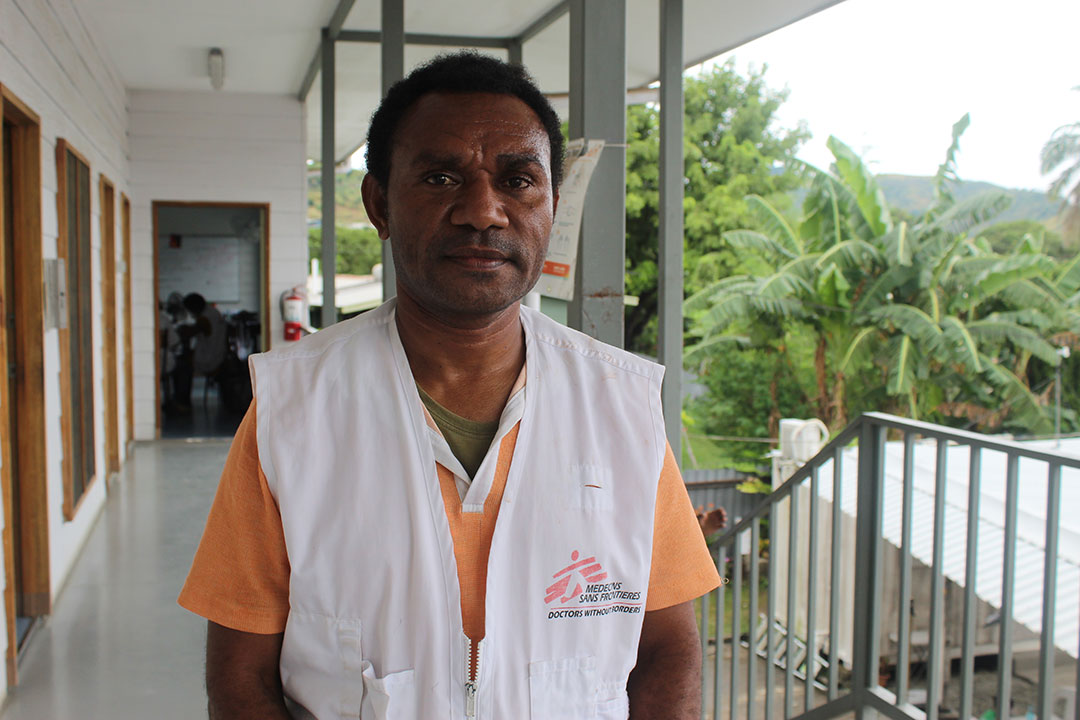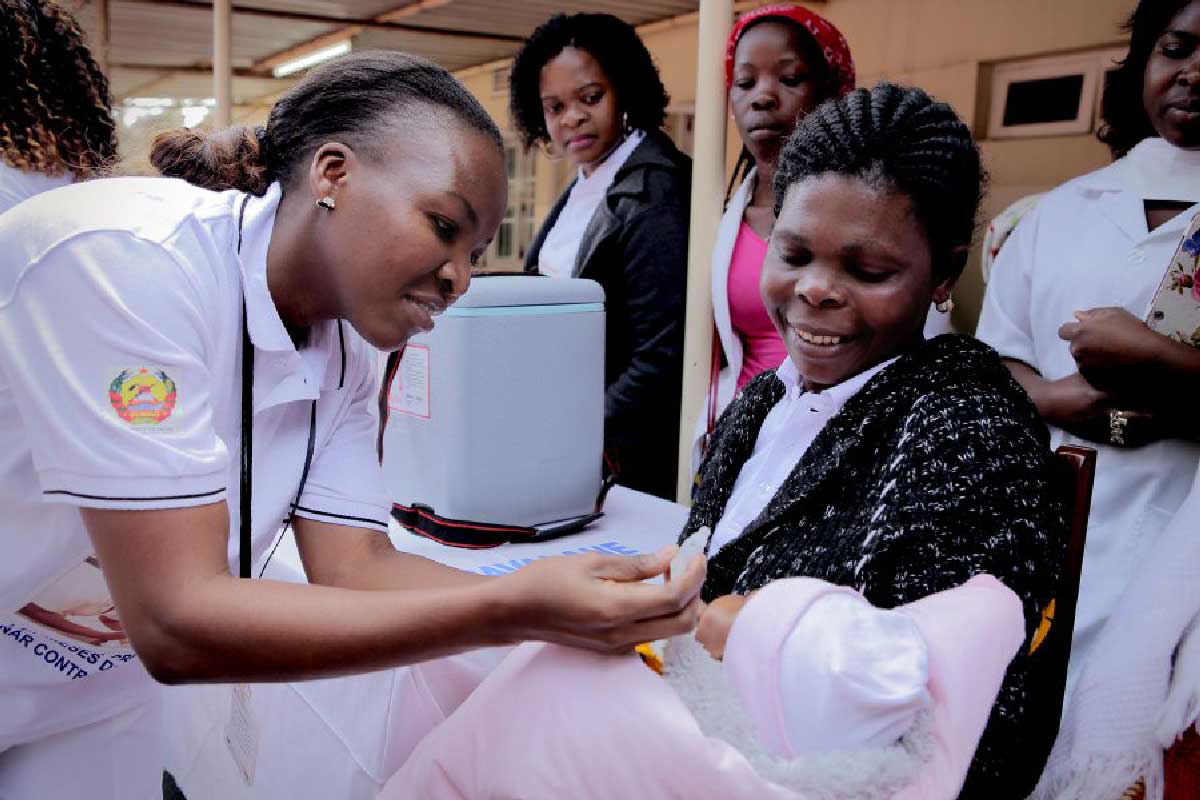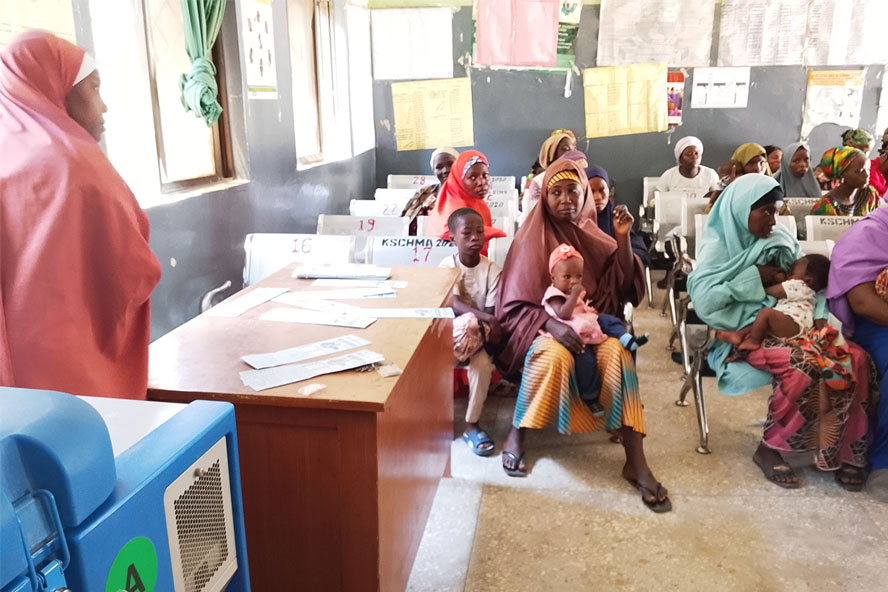Papua New Guinea's fight against TB
There is a concerted and coordinated effort in Papua New Guinea to reduce the burden of tuberculosis in the country.
- 1 July 2022
- 4 min read
- by Leanne Jorari

Papua New Guinea has one of the highest rates of prevalence for tuberculosis (TB) in the world, with 30,000 new cases reported every year. The situation is so alarming that the government has declared a state of emergency in some provinces.
As a result there is a lot of work being carried out by the PNG health department, international donors and global health organisations such as World Vision and Médecins Sans Frontiers (MSF) to strengthen the prevention, diagnosis, and treatment of one of the country’s leading causes of death.
“It was quite stressful for me and my family in the beginning, but after the team came to my home and gave us TB awareness and counselling, it became easier.”

Credit: Leanne Jorari
The National Capital District – where capital city Port Moresby is located - Morobe, Gulf and Western Province are all classified as hotspots. In addition, with 80% of people living in rural areas where there are limited health facilities, many have to travel great distances on foot to get to the nearest aid post.
The work being done on prevention, diagnosis and treatment in Port Moresby is being carried out by hardworking health workers like Nellie Akai, a community health worker working at the Gerehu Clinic.
“People come from far to have us treat them. Even people in nearby provinces don’t always have no access to specialised treatment. With TB, we have the patient education and counselling session that every patient must go through at the start of treatment. They are made aware of their condition, and given the necessary support and, to a certain extent, the willpower needed to follow through on treatment,” says Akai.
Gerehu Clinic is being supported by Médecins Sans Frontieres (MSF), with patients mainly coming from Port Moresby and the nearby Gulf and Central Provinces. The work is difficult because a portion of the patients, estimated at 20%, don’t complete their treatment. This can lead to multiple drug-resistant tuberculosis.
“Since I was diagnosed with TB last year, the Gerehu Clinic team, through their approach and support, have been very helpful. From medication to counselling, the team made the six-month period go by smoothly and I was cured of the disease,” says recovered patient, Peter Wueh. “It was quite stressful for me and my family in the beginning, but after the team came to my home and gave us TB awareness and counselling, it became easier.”
Have you read?
Médecins Sans Frontieres (MSF) also carries out outreach visits to communities in Port Moresby, particularly for patients who struggle to access clinics or follow through on treatment.
“The team visit areas in Port Moresby that we deem high risk for TB cases, especially in low-income areas like urban settlements which are highly populous with poor sanitation, where the disease can spread easily.” explains MSF Community Mobiliser, Waru Biremo.
Health care workers and community mobilisers like Waru play an integral role in the fight against TB. Unfortunately, due to a lack of TB awareness, they often have to deal with stigmas surrounding the disease.
“Many people don’t come in due to fear that their communities may shun them, which is mainly due to their not understanding the disease and that it is curable.” says Biremo.
In Daru, the Australian government and World Vision is working with the PNG government on the Stop TB Partnership, an accelerated programme that helps patients complete their treatment.
World Vision set up five Daru Accelerated Response to Tuberculosis (DART) sites across Daru Island where health workers are stationed to take care of patients.
Each DART site follows the World Health Organization-approved approach, Direct Observatory Treatment, Short-Course (DOTS), which is designed to ensure that patients complete their therapy as soon as possible.
The World Vision teams on Daru Island also conduct home visits, particularly for students who need to be in school but are forced to stay home because of the disease.
In Lae city, the country’s second largest city, the Australian government opened the country’s main tuberculosis ward at the Angau Memorial Hospital as part of a joint redevelopment plan for the hospital. The new ward provides 26 beds to treat tuberculosis cases in a modern facility, leading to improved patient outcomes.
“It will provide state-of-art health facilities for the Momase region, and for the rest of PNG,” said Health Minister Jelta Wong before the ward was opened.
The hope and intention is that these collaborative efforts will help Papua New Guinea move out of the high burden countries list.






